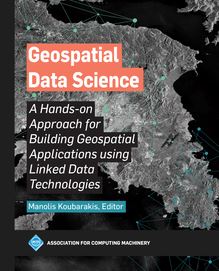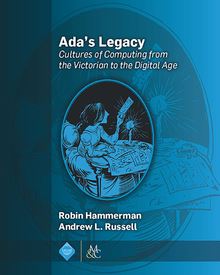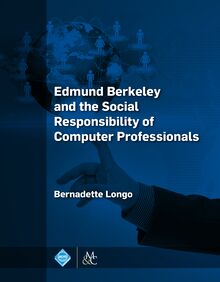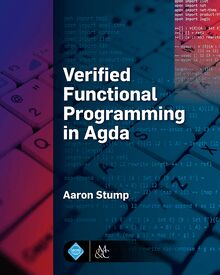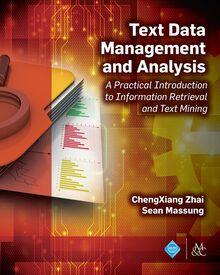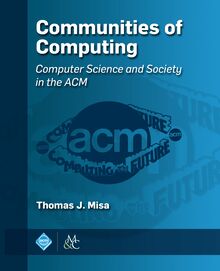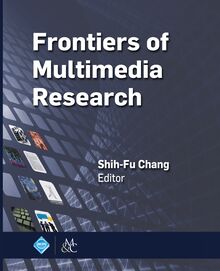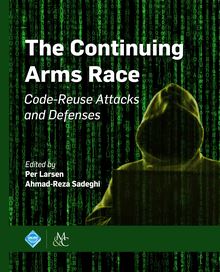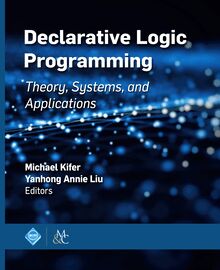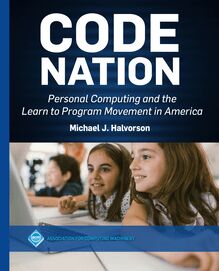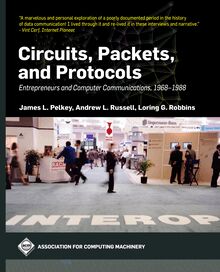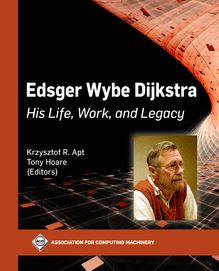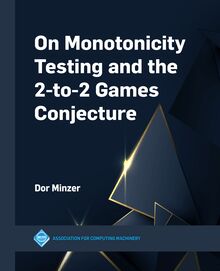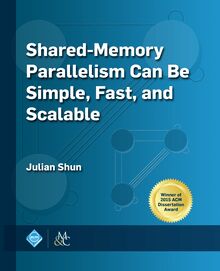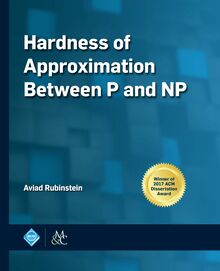-
 Univers
Univers
-
 Ebooks
Ebooks
-
 Livres audio
Livres audio
-
 Presse
Presse
-
 Podcasts
Podcasts
-
 BD
BD
-
 Documents
Documents
-
- Cours
- Révisions
- Ressources pédagogiques
- Sciences de l’éducation
- Manuels scolaires
- Langues
- Travaux de classe
- Annales de BEP
- Etudes supérieures
- Maternelle et primaire
- Fiches de lecture
- Orientation scolaire
- Méthodologie
- Corrigés de devoir
- Annales d’examens et concours
- Annales du bac
- Annales du brevet
- Rapports de stage
La lecture à portée de main
Vous pourrez modifier la taille du texte de cet ouvrage
Découvre YouScribe en t'inscrivant gratuitement
Je m'inscrisComputing and the National Science Foundation, 1950-2016 , livre ebook
Découvre YouScribe en t'inscrivant gratuitement
Je m'inscrisEn savoir plus
Vous pourrez modifier la taille du texte de cet ouvrage
En savoir plus

Description
This organizational history relates the role of the National Science Foundation (NSF) in the development of modern computing.
Drawing upon new and existing oral histories, extensive use of NSF documents, and the experience of two of the authors as senior managers, this book describes how NSF’s programmatic activities originated and evolved to become the primary source of funding for fundamental research in computing and information technologies.
The book traces how NSF's support has provided facilities and education for computing usage by all scientific disciplines, aided in institution and professional community building, supported fundamental research in computer science and allied disciplines, and led the efforts to broaden participation in computing by all segments of society.
Today, the research and infrastructure facilitated by NSF computing programs are significant economic drivers of American society and industry. For example, NSF supported work that led to the first widely-used web browser, Netscape; sponsored the creation of algorithms at the core of the Google search engine; facilitated the growth of the public Internet; and funded research on the scientific basis for countless other applications and technologies. NSF has advanced the development of human capital and ideas for future advances in computing and its applications.
This account is the first comprehensive coverage of NSF's role in the extraordinary growth and expansion of modern computing and its use. It will appeal to historians of computing, policy makers and leaders in government and academia, and individuals interested in the history and development of computing and the NSF.
- Preface
- PART I CHRONOLOGICAL HISTORY
- 1950-1974: Science Information, Computing Facilities, Education, and Basic Research
- 1974-1986: CER, CSNET, NSFNET, and the Founding of CISE
- 1986-1998: The New Directorate in a Period of Computer Science Expansion
- 1999-2006: Broadening Computer Science with New Initiatives
- 2007-2016: The Growing Centrality of CISE to NSF
- PART II SELECTED SUBJECT STUDIES
- Pre-CISE Computing Facilities and Education Programs
- Pre-CISE Computing Research
- Information Technology Research
- Networking Research and Deployment
- NSF Support of High-Performance Computation
- CISE's Role in Broadening Participation in Computing
- What Does an AD/CISE Do?
- PART III SUMMARY AND CONCLUSIONS
- Summary and Conclusions
- APPENDIXES
- Computing Organizations at NSF
Sujets
Informations
| Publié par | Association for Computing Machinery and Morgan & Claypool Publishers |
| Date de parution | 21 novembre 2019 |
| Nombre de lectures | 0 |
| EAN13 | 9781450372756 |
| Langue | English |
| Poids de l'ouvrage | 5 Mo |
Informations légales : prix de location à la page 0,1598€. Cette information est donnée uniquement à titre indicatif conformément à la législation en vigueur.
Extrait
Computing and the National Science Foundation, 1950–2016
ACM Books
Editor in Chief
Sanjiva Prasad, Indian Institute of Technology Delhi
ACM Books is a new series of high-quality books for the computer science community, published by ACM in collaboration with Morgan & Claypool Publishers. ACM Books publications are widely distributed in both print and digital formats through booksellers and to libraries (and library consortia) and individual ACM members via the ACM Digital Library platform.
Computing and the National Science Foundation, 1950–2016: Building a Foundation for Modern Computing
Peter A. Freeman, Georgia Institute of Technology
W. Richards Adrion, University of Massachusetts Amherst
William Aspray, University of Colorado Boulder
2019
Providing Sound Foundations for Cryptography: On the work of Shafi Goldwasser and Silvio Micali
Editor: Oded Goldreich, Weizmann Institute of Science
2019
Concurrency: The Works of Leslie Lamport
Editor: Dahlia Malkhi, VMware Research and Calibra
2019
The Essentials of Modern Software Engineering: Free the Practices from the Method Prisons!
Ivar Jacobson, Ivar Jacobson International
Harold “Bud” Lawson, Lawson Konsult AB (deceased)
Pan-Wei Ng, DBS Singapore
Paul E. McMahon, PEM Systems
Michael Goedicke, Universit¨at Duisburg–Essen
2019
Data Cleaning
Ihab F. Ilyas, University of Waterloo
Xu Chu, Georgia Institute of Technology
2019
Conversational UX Design: A Practitioner’s Guide to the Natural Conversation Framework
Robert J. Moore, IBM Research–Almaden
Raphael Arar, IBM Research–Almaden
2019
Heterogeneous Computing: Hardware and Software Perspectives
Mohamed Zahran, New York University
2019
Hardness of Approximation Between P and NP
Aviad Rubinstein, Stanford University
2019
The Handbook of Multimodal-Multisensor Interfaces, Volume 3: Language Processing, Software, Commercialization, and Emerging Directions
Editors: Sharon Oviatt, Monash University
Björn Schuller, Imperial College London and University of Augsburg
Philip R. Cohen, Monash University
Daniel Sonntag, German Research Center for Artificial Intelligence (DFKI)
Gerasimos Potamianos, University of Thessaly
Antonio Krüger, Saarland University and German Research Center for Artificial Intelligence (DFKI)
2019
Making Databases Work: The Pragmatic Wisdom of Michael Stonebraker
Editor: Michael L. Brodie, Massachusetts Institute of Technology
2018
The Handbook of Multimodal-Multisensor Interfaces, Volume 2: Signal Processing, Architectures, and Detection of Emotion and Cognition
Editors: Sharon Oviatt, Monash University
Björn Schuller, University of Augsburg and Imperial College London
Philip R. Cohen, Monash University
Daniel Sonntag, German Research Center for Artificial Intelligence (DFKI)
Gerasimos Potamianos, University of Thessaly
Antonio Krüger, Saarland University and German Research Center for Artificial Intelligence (DFKI)
2018
Declarative Logic Programming: Theory, Systems, and Applications
Editors: Michael Kifer, Stony Brook University
Yanhong Annie Liu, Stony Brook University
2018
The Sparse Fourier Transform: Theory and Practice
Haitham Hassanieh, University of Illinois at Urbana-Champaign
2018
The Continuing Arms Race: Code-Reuse Attacks and Defenses
Editors: Per Larsen, Immunant, Inc.
Ahmad-Reza Sadeghi, Technische Universit¨ at Darmstadt
2018
Frontiers of Multimedia Research
Editor: Shih-Fu Chang, Columbia University
2018
Shared-Memory Parallelism Can Be Simple, Fast, and Scalable
Julian Shun, University of California, Berkeley
2017
Computational Prediction of Protein Complexes from Protein Interaction Networks
Sriganesh Srihari, The University of Queensland Institute for Molecular Bioscience
Chern Han Yong, Duke-National University of Singapore Medical School
Limsoon Wong, National University of Singapore
2017
The Handbook of Multimodal-Multisensor Interfaces, Volume 1: Foundations, User Modeling, and Common Modality Combinations
Editors: Sharon Oviatt, Incaa Designs
Björn Schuller, University of Passau and Imperial College London
Philip R. Cohen, Voicebox Technologies
Daniel Sonntag, German Research Center for Artificial Intelligence (DFKI)
Gerasimos Potamianos, University of Thessaly
Antonio Krüger, Saarland University and German Research Center for Artificial Intelligence (DFKI)
2017
Communities of Computing: Computer Science and Society in the ACM
Editor: Thomas J. Misa, University of Minnesota
2017
Text Data Management and Analysis: A Practical Introduction to Information Retrieval and Text Mining
ChengXiang Zhai, University of Illinois at Urbana–Champaign
Sean Massung, University of Illinois at Urbana–Champaign
2016
An Architecture for Fast and General Data Processing on Large Clusters
Matei Zaharia, Stanford University
2016
Reactive Internet Programming: State Chart XML in Action
Franck Barbier, University of Pau, France
2016
Verified Functional Programming in Agda
Aaron Stump, The University of Iowa
2016
The VR Book: Human-Centered Design for Virtual Reality
Jason Jerald, NextGen Interactions
2016
Ada’s Legacy: Cultures of Computing from the Victorian to the Digital Age
Robin Hammerman, Stevens Institute of Technology
Andrew L. Russell, Stevens Institute of Technology
2016
Edmund Berkeley and the Social Responsibility of Computer Professionals
Bernadette Longo, New Jersey Institute of Technology
2015
Candidate Multilinear Maps
Sanjam Garg, University of California, Berkeley
2015
Smarter Than Their Machines: Oral Histories of Pioneers in Interactive Computing
John Cullinane, Northeastern University; Mossavar-Rahmani Center for Business and Government, John F. Kennedy School of Government, Harvard University
2015
A Framework for Scientific Discovery through Video Games
Seth Cooper, University of Washington
2014
Trust Extension as a Mechanism for Secure Code Execution on Commodity Computers
Bryan Jeffrey Parno, Microsoft Research
2014
Embracing Interference in Wireless Systems
Shyamnath Gollakota, University of Washington
2014
Computing and the National Science Foundation, 1950–2016
Building a Foundation for Modern Computing
Peter A. Freeman
Georgia Institute of Technology
W. Richards Adrion
University of Massachusetts Amherst
William Aspray
University of Colorado Boulder
ACM Books #31
Copyright © 2019 by Association for Computing Machinery
All rights reserved. No part of this publication may be reproduced, stored in a retrieval system, or transmitted in any form or by any means—electronic, mechanical, photocopy, recording, or any other except for brief quotations in printed reviews—without the prior permission of the publisher.
Designations used by companies to distinguish their products are often claimed as trademarks or registered trademarks. In all instances in which the Association for Computing Machinery is aware of a claim, the product names appear in initial capital or all capital letters. Readers, however, should contact the appropriate companies for more complete information regarding trademarks and registration.
Computing and the National Science Foundation, 1950–2016: Building a Foundation for Modern Computing
Peter A. Freeman, W. Richards Adrion, William Aspray
books.acm.org
ISBN: 978-1-4503-7274-9 eBook
ISBN: 978-1-4503-7275-6 EPUB
ISBN: 978-1-4503-7276-3 paperback
ISBN: 978-1-4503-7277-0 hardcover
Series ISSN: 2374-6769 print 2374-6777 electronic
DOIs:
10.1145/3336323 Book
10.1145/3336323.3336332 Chapter 8
10.1145/3336323.3336324 Front Matter
10.1145/3336323.3336333 Chapter 9
10.1145/3336323.3336326 Chapter 1
10.1145/3336323.3336334 Chapter 10
10.1145/3336323.3336326 Chapter 2
10.1145/3336323.3336335 Chapter 11
10.1145/3336323.3336327 Chapter 3
10.1145/3336323.3336336 Chapter 12
10.1145/3336323.3336328 Chapter 4
10.1145/3336323.3336337 Chapter 13
10.1145/3336323.3336329 Chapter 5
10.1145/3336323.3336338 Appendixes
10.1145/3336323.3336330 Chapter 6
10.1145/3336323.3336339 Index/Bios
10.1145/3336323.3336331 Chapter 7
A publication in the ACM Books series, #31 Editor in Chief: Sanjiva Prasad, Indian Institute of Technology Delhi Founding Editor: M. Tamer Özsu, University of Waterloo Area Editor: Thomas Misa, University of Minnesota
This book was typeset in Arnhem Pro 10/14 and Flama using ZzT E X.
First Edition
10 9 8 7 6 5 4 3 2 1
We dedicate this book to the thousands of NSF employees, past and present, and the hundreds of thousands of investigators, graduate students, educators, and reviewers who built and sustained what is often called the “gold standard” of peer-reviewed fundamental scientific research.
Contents
Preface
PART I CHRONOLOGICAL HISTORY
Chapter 1 1950–1974: Science Information, Computing Facilities, Education, and Basic Research
W. Richards Adrion
1.1 Science Information—1950s to 1980s
1.2 Filling the Demand for Computing Infrastructure
1.3 Computers in Education
1.4 Finding a Home for Computer Science Research
1.5 Summary and Conclusions
Notes
Chapter 2 1974–1986: CER, CSNET, NSFNET, and the Founding of CISE
W. Richards Adrion
2.1 My Background and Perspective on the 1974–86 Period
2.2 Making the Case for NSF’s Computing Research Programs
2.3 The Importance of Computing Research and Infrastructure to the Nation
2.4 Computing and Information Research in NSF, 1974–1978
2.5 Funding the Innovators in Computer Science
2.6 Facilities
2.7 Cryptography and Interactions with the National Security Agency
2.8 The Computer Science Section, 1979–1984
2.9 Addressing the Need for Academic Experimental Computer Science
2.10 CSNET
2.11 The Office of Advanced Scientific Computing and NSFNET
2.12 The Beginning of CISE
2.13 Summary and Conclusions
Notes
Chapter 3 1986–1998: The New Directorate in a Period of Computer Science Expansion
Peter A. Freeman
3.1 Initial Structure and Leadership of CISE: 1986–1987
3.2 Organizational Initiation
3.3 Initial A
-
 Univers
Univers
-
 Ebooks
Ebooks
-
 Livres audio
Livres audio
-
 Presse
Presse
-
 Podcasts
Podcasts
-
 BD
BD
-
 Documents
Documents
-
Jeunesse
-
Littérature
-
Ressources professionnelles
-
Santé et bien-être
-
Savoirs
-
Education
-
Loisirs et hobbies
-
Art, musique et cinéma
-
Actualité et débat de société
-
Jeunesse
-
Littérature
-
Ressources professionnelles
-
Santé et bien-être
-
Savoirs
-
Education
-
Loisirs et hobbies
-
Art, musique et cinéma
-
Actualité et débat de société
-
Actualités
-
Lifestyle
-
Presse jeunesse
-
Presse professionnelle
-
Pratique
-
Presse sportive
-
Presse internationale
-
Culture & Médias
-
Action et Aventures
-
Science-fiction et Fantasy
-
Société
-
Jeunesse
-
Littérature
-
Ressources professionnelles
-
Santé et bien-être
-
Savoirs
-
Education
-
Loisirs et hobbies
-
Art, musique et cinéma
-
Actualité et débat de société
- Cours
- Révisions
- Ressources pédagogiques
- Sciences de l’éducation
- Manuels scolaires
- Langues
- Travaux de classe
- Annales de BEP
- Etudes supérieures
- Maternelle et primaire
- Fiches de lecture
- Orientation scolaire
- Méthodologie
- Corrigés de devoir
- Annales d’examens et concours
- Annales du bac
- Annales du brevet
- Rapports de stage
